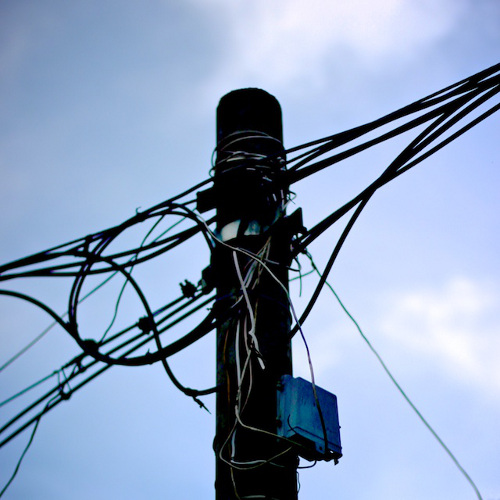
The Landry comms station was about six hundred miles from the giant snowdrift I called home, two and a half hours on the express maglev service interrupted by a transfer about a third of the way through. In other words, on the scale of interstellar messaging, basically a rounding error away.
For most of the five minutes I spent inside the main building, I could only think to myself that I’d drawn the short straw in getting assigned to Sudalis. The tech my boss had sent me to meet, a woman about my age who introduced herself as Sabina, gave me the rundown as we walked down to the control room. Landry had a recently renovated interior, modern equipment, and an automated monitoring system. I got the uneasy feeling that, even though all these niceties meant that Sabina had much less work to do, she was still getting paid a fair sight more than I was.
Most of this resentment went away when, upon opening the control room’s main door, we were greeted by the sound of alarms blaring like five fire drills all happening at once. Sabina cursed to herself, then promptly grabbed my arm and made for the nearest exit. Her build was rather slight, but she had the grip of a teenager who liked to take joyrides on fast-moving cargo transports. “I had a feeling this would happen,” she said as we pushed open an emergency exit leading to the rear of the building. The smell of burning metal wafted across my nose. “We should have just met in a coffee shop instead. Care for a cup?”
Continue reading
As I tried not to burn my tongue on the espresso I’d just bought, Sabina explained to me that Landry had been suffering from a string of apparently unrelated equipment failures, at a pace of about once every three to four weeks. A couple of months ago, for instance, a central switch had developed a catastrophic short that touched off an electrical fire. Even with automatic deployment of suppressant gas, the fire got bad enough that two whole racks of hardware were eventually written off, and the station had to be shut down for an entire day while the mildly toxic suppressant ventilated from the building. This was followed some time later by a literal explosion, although fortunately a small one, in an underground tank used to store coolant. Again, the complex was evacuated. No one was hurt, but it seemed only a matter of time.
“I never really liked my job, but at least I didn’t hate it, you know?” Sabina said, swirling a stirrer idly around her half-empty cup. “I was willing to put up with most anything as long as I got paid, but putting my life on the line was never in the job description.”
“Oh. Well, that’s not why I came here, but you have my sym–”
“But isn’t it? Here’s the thing: This all started happening maybe three days after we got that first clown message. Suspicious? You tell me.”
I resisted. To my mind, whoever had sent the clown messages was just an idle prankster, not someone with a taste for wanton destruction. “It’s probably just a coincidence. You have all these new shiny gadgets. Maybe they’ve got, uh, unpredictable failure modes,” I said, wishing I could come up with a way to characterize the problem that sounded less like a technical euphemism.
“If they can forge headers that are supposed to be authenticated, who knows what else they’re capable of doing? God knows that with all those moving parts, there’s going to be at least one hole big enough to drive a clown car through.”
“Clown cars aren’t very big, you know. That’s the whole gimmick.”
Sabina sighed. “Just drink your damn coffee.”